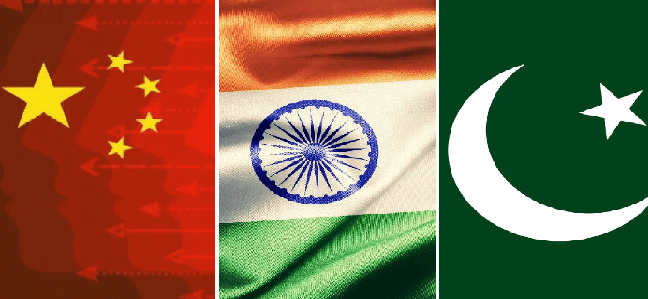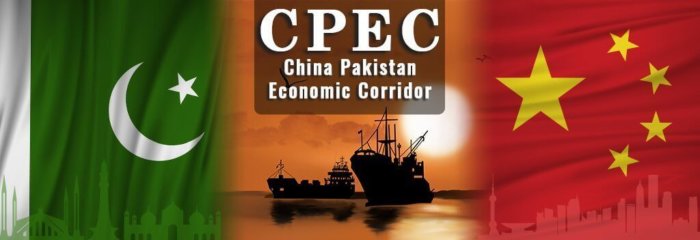India was among the first non-communist countries to recognize the People’s Republic of China (PRC), but today it is facing the collusive China-Pakistan threat along the eastern and northern frontiers.
Afghanistan, The Graveyards Of Super Powers – Will China Be Next In The Firing-Line?
On April 1, 1950, India and China established diplomatic relations and the two nations recognized each others’ geographical and economic importance in the region. Taking a cue from India, Pakistan became the first Islamic country to establish ties with the PRC in 1951.
A BBC report stated that while a Chinese delegation made an official visit to Pakistan, the bond between the two wasn’t as strong. India, on the other hand, was making progress with China on the business and economic fronts. The report says when the first Chinese premier Zhou Enlai met Pakistan ambassador to China Sultanuddin Ahmed, he advised the latter not to take military action in Kashmir.

This can be verified through archival records at the Woodrow Wilson Center in Washington DC. “Premier Zhou said as regards the Kashmir issue, this time our newspapers have not yet made any comments and just reported the Soviet leaders’ speeches.
This is not to say that our viewpoint differs in any way from that of the Soviet Union; it is to urge forward Indo-Pakistani unity in resolving the Kashmir issue,” according to the archival records of the meeting.
This is in reference to the Secretary of the Communist Party of the Soviet Union Nikita Khrushchev’s visit to Srinagar in 1955. He declared Kashmir as part of India and that the issue has been decided by the people of Kashmir.
However, the Pakistani ambassador had stated that this “runs counter to the interests of the people of Pakistan and Kashmir, and it is disadvantageous for Indo-Pakistani relations and for Asian unity and peace in this region”.
At the meeting, Zhou kept urging Pakistan to resolve the Kashmir issue peacefully as in an event of a military conflict, the United Nations Security Council would have to intervene.
“To have the United Nations supervise is, in reality, to have the United States interfere. The United States will say some nice-sounding things to Pakistan, but what it’s focused on are colonialist interests. Bringing the United States into Kashmir is troubling to us,” Zhou had noted.
How Pakistan Got Closer To China
According to Nirupama Subramanian of The Indian Express, the relationship between Pakistan and China really started to warm up after the India-China war of 1962. Further, the Tibet issue disturbed the relationship between Beijing and New Delhi.
China gained control of Tibet in the 1950s when it annexed the Tibetan Autonomous Region. The region saw a massive uprising in 1959 but the Chinese troops crushed it.
Fearing for his life, the Dalai Lama fled to India, and a Tibetan government-in-exile was set up in India’s Dharamshala. The Tibetans have been resisting the Chinese occupation of their land for decades.

Then Prime Miniter Jawahar Lal Nehru’s forward policy to define the Indian border with the Tibet Autonomous Region of China and New Delhi’s decision to provide shelter to 14th Dalai Lama after he crossed over to India on March 31, 1959, were the key reasons behind the 1962 border war.
Meanwhile, Pakistan remained a steadfast ally during Beijing’s period of international isolation in the 1960s and early 1970s. The two countries also increased cooperation in business and trade. Today, the partnership has led to Beijing investing $62 billion in the Islamic nation under the China-Pakistan Economic Corridor (CPEC).
The multi-billion-dollar CPEC project, part of China’s ambitious Belt and Road Initiative (BRI), was launched in 2015 with an aim to connect Southeast Asia, Central Asia, the Gulf region, Africa, and Europe with a network of land and sea routes.

China’s BRI has received backlash from western countries. The US has criticized the CPEC program saying that it is neither transparent nor cost-efficient. It has further warned Pakistan that it is subjecting itself to expensive loans under China’s BRI through which Beijing has pledged more than US$60 billion so far.
However, the warning fell on deaf ears and Islamabad has vehemently defended the project saying this would ensure Pakistan’s economic development.
The Pakistan government and the opposition have come together and repeatedly hailed CPEC as a “game-changer and a guarantor of a better tomorrow for the country”.
Through years of warming up, Islamabad has been dependent on Beijing for economic and technological support. After India’s nuclear tests in 1998, Pakistan matched India by conducting similar tests. While China expressed “grave regret” over Indian nuclear blasts and “strongly condemned” the action, media reports show Beijing’s active support to Pakistan in conducting those tests.
According to The Heritage Foundation, an American think tank, China provided Pakistan with highly enriched uranium, ring magnets necessary for processing the uranium, and education for nuclear engineers. “Pakistan’s nuclear bomb, in fact, is widely believed to be based on Chinese blueprints,” it said.
While China and Pakistan’s brotherhood still stands strong, India is now facing the heat from both its neighbors along its borders in Ladakh and Jammu and Kashmir respectively.
Follow EurAsian Times on Google News




